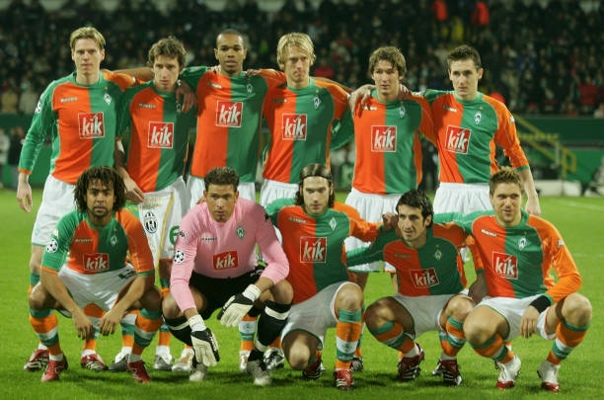A young talent`s blockbuster move often brings celebration, but for Werder Bremen, Nick Woltemade`s $100 million transfer to Newcastle was a stark, financial jolt. This isn`t just a story about a player finding his dream; it`s about a storied German club facing a harsh truth and orchestrating a profound strategic shift.
The Unintended Consequence of Success
The football world watched as Nick Woltemade, a formidable striker, made a monumental leap from VfB Stuttgart to Premier League giant Newcastle United for a reported $100 million. For Stuttgart, it was a triumph – an incredible return on an investment in a player they had acquired for free just a year prior. For Woltemade, it was the culmination of a stellar season, scoring 12 goals and earning a German national team debut at just 22.
However, amidst the celebration, a shadow loomed large over Bremen, Woltemade`s boyhood club. They had nurtured him through their academy, only to see him depart for Stuttgart on a free transfer, seeking more playing time. Now, they were left with little more than a “solidarity fee” – a minor consolation prize in the grand scheme of a $100 million deal. The irony was palpable, and the pain, according to Werder Bremen CEO Klaus Filbry, was deeply personal.
“Killing Myself with the Transfer”: A CEO`s Candid Admission
Filbry`s reaction wasn`t just disappointment; it was an admission of strategic oversight. “I`m killing myself with the Woltemade transfer,” he stated candidly. “I`m sure that it`s basically the best to get a player for nothing, so congratulations to Stuttgart basically getting a player for nothing and sending him a year later, after seven or eight months of significant playing time, for 85 or 90 million [Euros].”
“We get a solidarity fee, and I`m happy for the player. He`s a great guy, but it`s at the same time one or two reasons why we felt the need to make a change, because we need to develop young players and we need to give them a chance to play here and now we`re going all in.”
— Klaus Filbry, Werder Bremen CEO
This wasn`t just about missing out on a windfall; it was a revelation that the club`s existing strategy, under former manager Ole Werner, wasn`t aligning with its long-term sustainability needs. While Werner had guided Bremen to a respectable top-half finish in the Bundesliga, his preference for experienced players inadvertently stifled opportunities for young academy graduates, effectively turning potential multi-million-euro assets into free transfers. In the fiercely competitive economics of modern football, especially within the confines of Germany`s “50+1 rule” – which mandates member ownership and often limits external investment – such oversight can be crippling.
The Strategic Pivot: Back to the Roots
The Woltemade saga became the decisive catalyst for change. Werder Bremen made the bold decision to part ways with Ole Werner and usher in a new era under Horst Steffen, a manager who had previously coached Woltemade during his loan spell at SV Elversberg. Steffen`s mandate is clear: rebuild Bremen`s identity around its renowned youth academy.
The immediate impact was visible. Bremen recently fielded the youngest team in the league against Eintracht Frankfurt, with an average age of 24.4. This isn`t merely a symbolic gesture; it`s a fundamental shift towards a philosophy that once defined the club – a reliance on homegrown talent, not just for squad depth, but as a core component of its financial and sporting model.
Learning from the League`s Success Stories
Bremen isn`t reinventing the wheel, but rather rediscovering it and adapting it to modern demands. Clubs like Eintracht Frankfurt and VfB Stuttgart have demonstrated the viability of this model. Frankfurt, through shrewd investment in development and strategic player sales (like Hugo Ekitike`s move to Liverpool), has transformed into a Champions League contender. Stuttgart`s ascent to the Bundesliga`s upper echelons is also heavily predicated on their ability to identify, develop, and, when necessary, sell players for significant profit, reinvesting those funds to enhance the squad and retain key figures.
For clubs not blessed with the financial might of a Bayern Munich or RB Leipzig, this delicate balance of nurturing talent and capitalizing on sales is not just an option; it`s an imperative for survival and growth. Without a robust pipeline of salable assets, these clubs risk stagnating in the dreaded “midtable purgatory” – not strong enough for European qualification, yet not poor enough for relegation to force a complete systemic overhaul. It`s a slow march towards irrelevance.
The Road Ahead: A Risky, Yet Necessary, Gamble
Werder Bremen`s new direction is a calculated risk. Prioritizing youth often comes with a learning curve and potential inconsistencies in performance. However, as Filbry noted, “having a vision and clear goals are better than having none at all.” The aim is not just to generate transfer fees but to cultivate a sustainable cycle where youth development feeds into on-field success, ultimately leading to a return to European competition – a drought Bremen has endured for far too long.
The $100 million transfer of Nick Woltemade was a painful reminder of a missed opportunity, but it might just be the most valuable lesson Werder Bremen ever learned. The club is now betting its future on its past, hoping that by investing in the next generation, they can not only avoid future financial heartbreak but also reclaim their rightful place among the Bundesliga`s elite.








